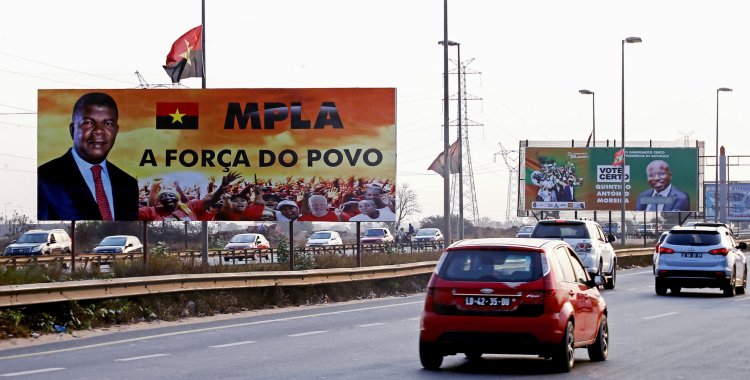Bali Chionga told Lusa agency that there is no doubt that the process brought by the National Union for the Total Independence of Angola (UNITA) party for the Accusation and Removal of the President, João Lourenço, delivered Thursday to the National Assembly, "stirs up the political movement national".
From a theoretical point of view, whether political or legal, said the academic, there is a compliant process, that is, there are political and legal conditions for this initiative to materialize.
"In fact, even though we are not in a kind of heureka of national politics, in fact, this initiative made many academics, scholars of law and politics, believe that we are in the presence of a Constitution that is more or less modern, if not even modern, because it contains mechanisms that make it possible to rescue power if it is in crisis due to the action or inaction of one of the three main bodies", he stressed.
The jurist highlighted that there is a procedural issue that arises, which has nothing to do with its legitimacy, "but with having a sufficient majority to move the process forward", an important issue "because UNITA does not have a two-thirds majority to make walk the process."
"And this progress of the process from the National Assembly is a condition for the court, in this case the Supreme Court, to learn about the crimes, and then, eventually, if there are questions of unconstitutionality, the intervention of the Constitutional Court", he observed, considering this fact "the main Achilles tendon" that will prevent this process from continuing.
For Bali Chionga, this process does not open a political crisis, "because national consciousness" draws attention to other "very important issues from a political and social point of view", such as the great economic challenges.
"But it is also true that, for the first time, after the elections, we continue to have a kind of dispute in the political arena. I also think that it is not an issue that puts the MPLA [Movimento Popular de Libertação de Angola] in a position of having to choose between your electorate and your leader, because, as far as I know, the deputies to the National Assembly are united around their leader", he highlighted.
The jurist stressed that the MPLA's history is "always closing ranks around its leader" and, in this chapter – in the case of a clearly political dispute, which has a legal stage –, "it is normal for UNITA to close ranks around this initiative and the MPLA closes ranks around the deconstruction of this initiative".
Bali Chionga is of the opinion that this fight will end "between these two greats" of Angolan politics, stressing that the MPLA, in this specific case, in terms of numbers is greater.
"Now, it is an innovation, it marks a new era, it marks the era of continued political dispute after the elections, which in fact is a growth in what has been the movement and march of national politics", he added.







